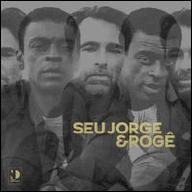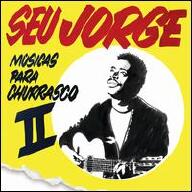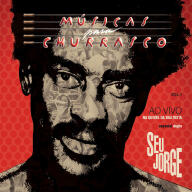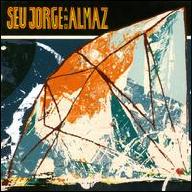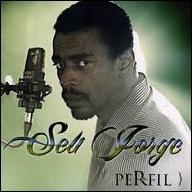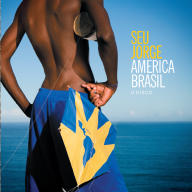Adopting the name Seu Jorge -- Seu, an abbreviation of "senhor," is a venerable Brazilian honorific -- his dusky baritone and charismatic stage presence immediately attracted attention and in 1999 he left Farofa Carioca to mount a solo career, collaborating with Beastie Boys producer Mario Caldato on the commercial and critical smash Samba Esporte Fino. In 2002, Jorge was cast as Knockout Ned in director Fernando Meirelles' Academy Award-nominated City of God -- two years later he co-starred in Wes Anderson's The Life Aquatic with Steve Zissou as Pelé Dos Santos, a member of an oceanography crew with a penchant for singing David Bowie covers in Portuguese. The project introduced many filmgoers to Jorge's musical career and greatly elevated the global profile of his sophomore solo effort, the acclaimed 2004 release Cru. The Life Aquatic Studio Sessions, assembling all 14 of the songs he recorded for the film, followed in late 2005. América Brasil: O Disco appeared in 2008 from Naïve Records, with Seu Jorge and Almaz arriving in 2010. ~ Jason Ankeny, Rovi
Seu Jorge
from Rio De Janeiro, Brazil
June 8, 1970 (age 55)
Biography
Singer Seu Jorge spearheaded the Brazilian samba renaissance of the early 21st century, expanding his audience far beyond South America via featured roles in the internationally acclaimed films City of God and The Life Aquatic with Steve Zissou. Born Jorge Mario da Silva on June 8, 1970, he spent his childhood in the slums of Rio de Janeiro, working odd jobs to survive. While serving his year of compulsory military service, he also played cornet in a Brazilian army band. In 1991, Jorge's 16-year-old brother was killed by Rio police. At the funeral he met Gabriel Moura, nephew of Brazilian saxophonist Paolo Maura, who agreed to put Jorge in touch with other aspiring musicians looking to form a band. He spent the next three years teaching himself guitar, and in 1993 was hired as an actor and musician with Tuerj, a theatrical troupe sponsored by the Universidade do Estado do Rio de Janeiro. Jorge appeared in close to two dozen Tuerj productions in the months to follow before exiting in 1996 to lead Farofa Carioca, a major-label Brazilian pop outfit that sold few records but nevertheless anticipated the commercial revival of samba.
Top Tracks
Albums
Videos
Close


